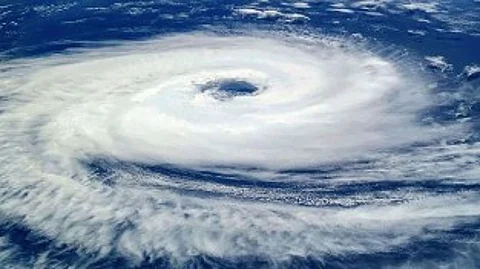

Revealing alarming statistics about Arabian Sea weather patterns, Soumya Dutta, an international climate change expert and Co-Convener of South Asian People's Action on Climate Crisis (SAPACC) in New Delhi, said, the Arabian Sea was not cyclone prone, but in the last 15 years the cyclones in the Sea have grown 100 per cent, adding that with this change, the warnings from IMD have increased resulting in 20-25% loss in the fisher folk's activities. Because of this there is a substantial loss in their livelihoods.
Dutta, who is a National Alliance for Climate and Ecological Justice (NACEJ) National Working Committee member, was speaking during a meeting organised by NACEJ in Margao, where 30-35 citizens from across Goa gathered to address the ecological destruction and climate crisis impacts affecting the State.
The meeting was coordinated by Goyche Fudle Pilge Khatir (GFPK). NACEJ National Working Committee member Santosh Lalwani was also present.
Speaking further Dutta emphasised that vulnerable communities including hawkers, construction workers, and rickshaw drivers are significantly affected by heat waves, while coastal areas experience daily beach erosion.
He criticised huge projects proceeding in Goa without proper Environmental Impact Assessment (EIA) or Social Impact Assessment (SIA) studies, with legal challenges becoming questionable.
Dutta criticised the Centre’s response to climate disasters, noting that while heat waves are identified as the fastest growing phenomenon due to climate change, the Union Ministry of Environment, Forest and Climate Change (MoEFCC) does not recognise it as a national disaster.
He cited the Wayanad landslide disaster as an example, where the Centre did not consider waiving off loans for those affected by landslides.
Abhijit Prabhudesai referenced the Goa State Action Plan for Climate Change, which “clearly states that 15% of Goa's land will be lost because of the climate change impact.” He criticised the government’s focus on port-led coastal development projects like Sagarmala, which could intensify climate change impacts without understanding these consequences in depth.
Cyril Fernandes highlighted the eroding coastal belt as a major concern affecting Goan beaches and fishing activities, while also noting occasional forest fires destroying the State’s green cover.
Avertino Miranda of Goa Green Brigade expressed concerns about environmentally disastrous projects, particularly in areas like Sinquerim, Candolim, and Vagator where “sand dunes are being destroyed and coasts getting wiped out as sea is reclaiming”.
Domnic Fernandes noted the destruction of natural sand dunes in Candolim for artificial makeup and massive mangrove cutting using JCBs. Tausif Nandhalli said hill cutting for sand mining and garbage management issues are affecting his village, emphasising the need for collective efforts as government response remains inadequate.
Joycee Dias from Sao Jose De Areal village expressed frustration that “village panchayats are not taken into consideration by TCP while giving permissions to infrastructure projects in villages”, resulting in ecological destruction and village deterioration.
Judas Barreto, of Poinguinunkarancho Ekvott drew parallels between Goa’s topography and Wayanad, emphasising the need to save comunidade land.
He noted that in Loliem/Poinguinim, “nearly 40 lakh sqms of land is being acquired for outsiders to build projects that are of no use to locals,” while Goa is declared a water-scarce area requiring scientific mapping of water-scarce areas across the State.
Lumina Almeida expressed concerns about the neglect of the Code of Comunidades, which predates the Portuguese era.
In Seraulim, Railways is planning five lines that will further isolate and divide the village, while residents face coal-related problems.
Ramkrishna Jhalmi reported a 20-year struggle for protection of tenanted land, citing ineffective implementation of tenancy laws despite good tenancy acts, with the need to save precious land from land sharks prowling in Goa.
Vithal Shetye from the Vivekananda Environment Awareness Brigade mentioned a High Court verdict to protect Mhadei Wildlife Sanctuary as a Tiger Reserve, stating that nobody has the right to divert rivers and declaring Mhadei as a tiger reserve would save these rivers.
Devendra Tawadkar highlighted the importance of protecting the Talpona River, which originates in the Western Ghats and covers 50% of Canacona, emphasising the need to protect natural cover.
Advocate Albertina Almeida criticised the State Human Rights Commission for establishing new permissible limits favouring polluting industries without consultative processes or consideration for climate change and disaster management.
Earlier, Santosh Lalwani, who travelled from Pune for this meeting, explained NACEJ’s purpose as part of the National Alliance for People's Movement (NAPM).